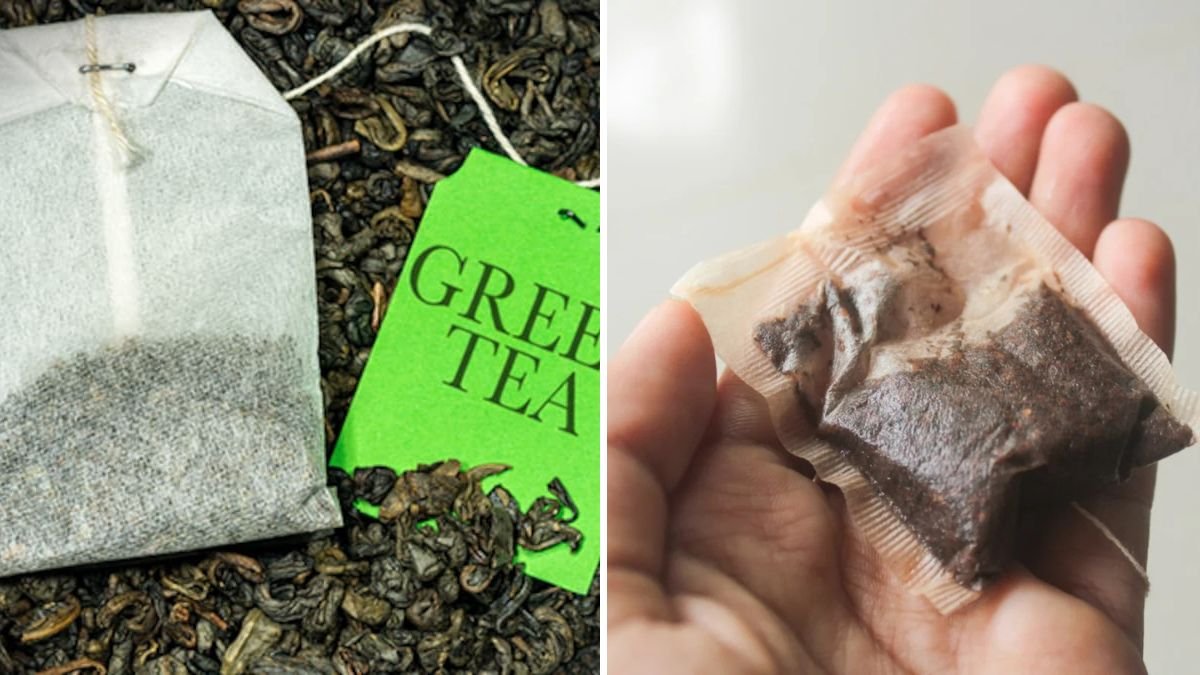Tea is one of the most widely consumed beverages worldwide, but the used tea bag doesn’t need to go straight into the trash. Old tea bags are a gardener’s secret weapon, packed with nutrients, organic matter, and natural compounds that benefit plants, soil, and even garden pests. By reusing tea bags thoughtfully, gardeners can reduce waste, improve soil health, and boost plant growth naturally.
This guide explores 10 creative, garden-friendly ways to reuse old tea bags, providing detailed instructions for each method to make your gardening more sustainable and effective.
1. Enrich Soil as Fertilizer
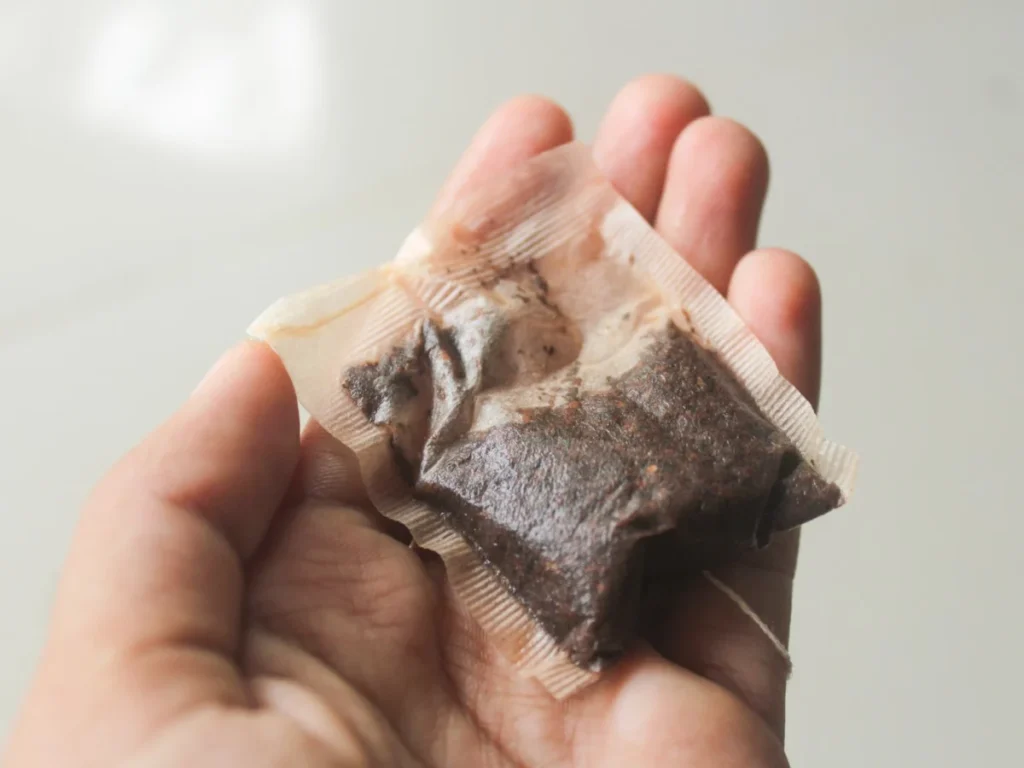
Used tea leaves are rich in nitrogen, an essential nutrient for plant growth. Instead of discarding tea bags:
- Remove the used tea leaves from the bag.
- Crumble the leaves directly into garden soil or mix with potting soil.
- Tea leaves improve soil fertility, promote healthy foliage, and boost microbial activity.
Tip: Avoid adding tea with flavorings or oils that may harm plants. Pure black, green, or herbal teas work best.
2. Compost Tea Bags for Nutrient-Rich Compost
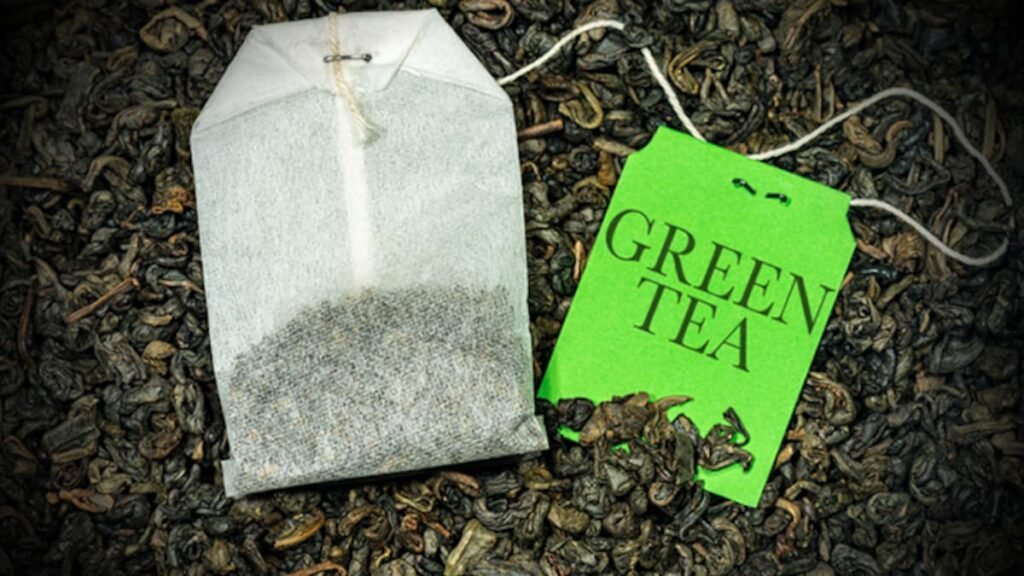
Tea bags can be a wonderful addition to compost piles, but there are a few considerations:
- Remove staples and synthetic materials from the bag.
- Tear open the bags to expose the leaves.
- Add leaves to your compost bin along with kitchen scraps and garden clippings.
- Tea accelerates decomposition and adds nitrogen, enhancing compost quality.
Over time, your compost will become dark, rich, and nutrient-dense, perfect for nourishing vegetables, flowers, and herbs.
3. Mulch for Moisture Retention
Tea bags can act as a natural mulch, helping retain moisture and regulate soil temperature:
- Open the bags and spread the tea leaves around plant bases.
- Cover small plants, seedlings, or container plants.
- Mulching reduces water evaporation and keeps roots cool during hot weather.
This method is especially effective for potted plants and container gardens, where soil tends to dry quickly.
4. Natural Pest Deterrent
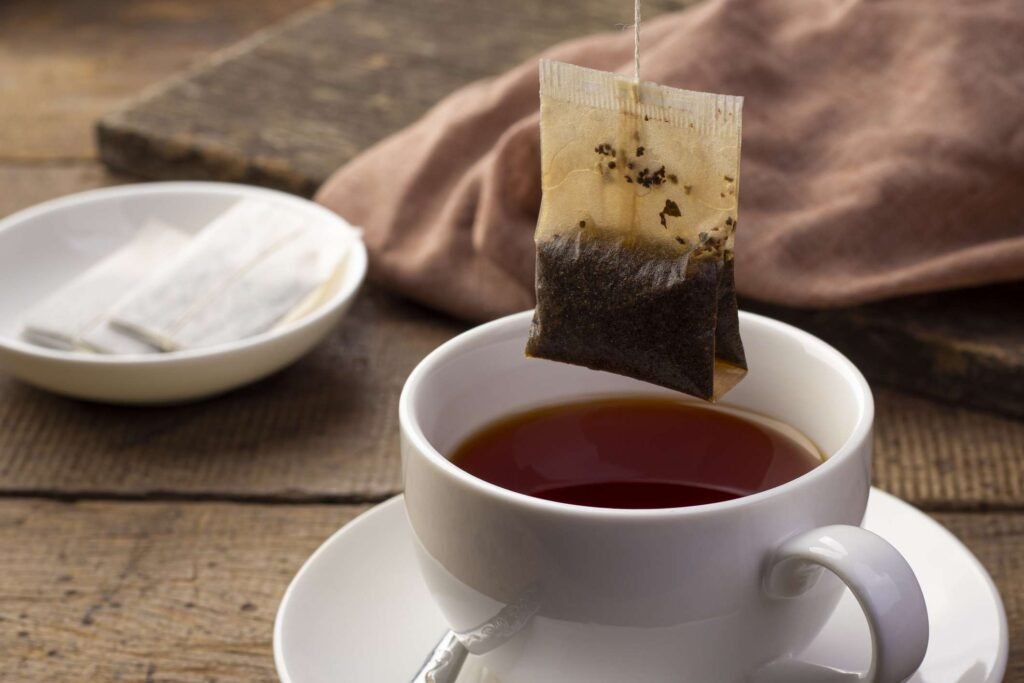
Certain compounds in tea, such as tannins, can repel pests naturally:
- Scatter used tea leaves around the base of plants prone to aphids, slugs, or snails.
- Alternatively, brew a weak tea with used bags and spray it on plant stems and leaves.
- Tea leaves can act as a gentle barrier, discouraging pests without harmful chemicals.
Tip: Combine with coffee grounds for extra pest-repelling power.
5. Boost Seedling Growth
Used tea leaves can promote healthy root development in seedlings:
- Mix finely crushed tea leaves into seed-starting soil or trays.
- Tea provides mild nutrients that encourage early growth without overpowering delicate roots.
- Monitor moisture levels carefully, as tea leaves retain water efficiently.
Seedlings grown in tea-enriched soil often exhibit stronger stems and greener leaves, giving them a head start in your garden.
6. Acid-Loving Plants Benefit
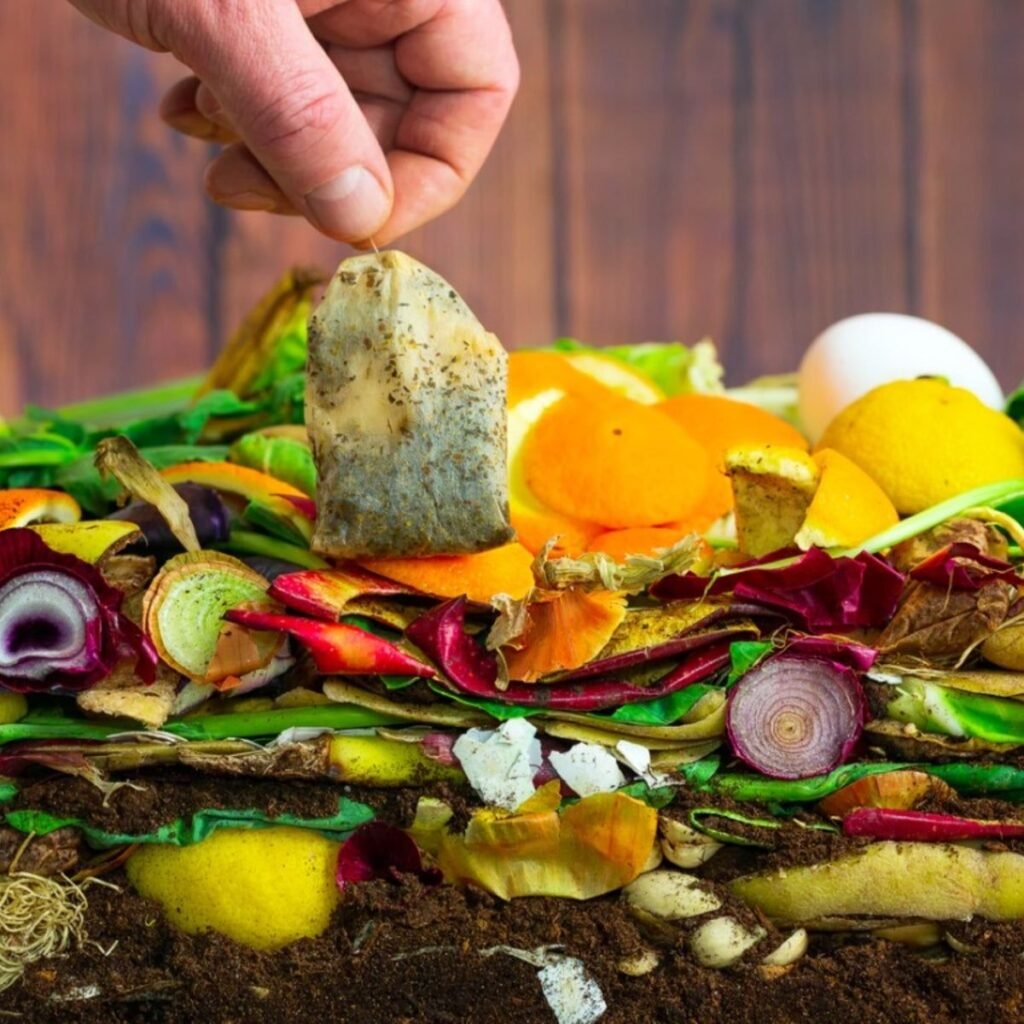
Some tea varieties, especially black tea, are slightly acidic, which can benefit plants like:
- Azaleas
- Rhododendrons
- Blueberries
- Camellias
How to use:
- Brew used tea bags, let them cool, and pour the tea around the base of acid-loving plants.
- Crumble dried tea leaves directly into the soil to slowly release acidity over time.
This method naturally adjusts soil pH for plants that thrive in acidic conditions.
7. Compostable Plant Ties
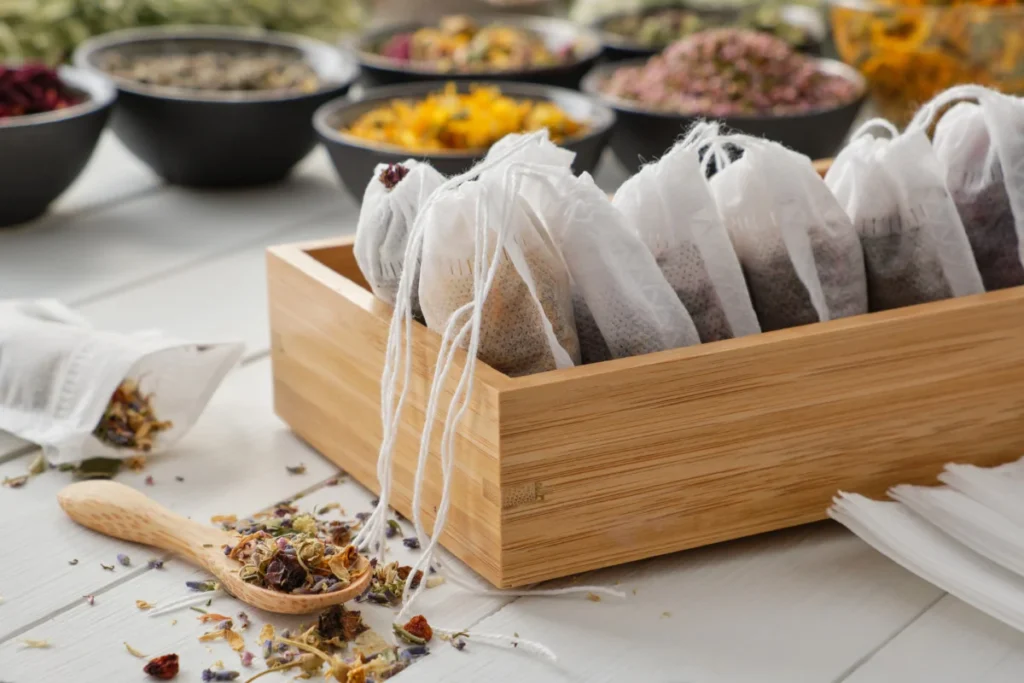
Tea bags can serve as eco-friendly ties or markers in the garden:
- Cut open empty bags and use the string or fabric to gently tie up tomato plants, beans, or climbing flowers.
- Avoid synthetic bags; use biodegradable ones to prevent microplastic pollution.
- Label plants by writing on tags attached to the tea string for an organized and sustainable garden.
This reuse method reduces waste while serving a practical purpose in garden management.
8. Homemade Fertilizer Tea for Watering
Brewing a “tea” from used tea bags is a simple way to fertilize plants naturally:
- Place 2–3 used tea bags in a liter of water and steep for 5–10 minutes.
- Let the tea cool and water your garden plants or houseplants with it.
- This liquid fertilizer provides nitrogen, antioxidants, and trace minerals to boost plant health.
Regular application improves foliage, flowering, and overall plant vigor.
9. Soil Amendment for Flower Beds
Old tea bags can improve soil texture and aeration in flower beds:
- Open the tea bags and mix the leaves into flower bed soil.
- Tea leaves add organic matter, improving drainage in clay soils and water retention in sandy soils.
- Over time, leaves break down and feed beneficial microorganisms.
This method helps enhance soil structure, promoting healthier root systems for ornamental plants.
10. Repel Odors in Garden Compost or Pots
Tea leaves can neutralize odors in compost bins and potted plants:
- Sprinkle used tea leaves on top of compost or inside planters before adding new soil.
- Tea leaves absorb unwanted smells and reduce the attraction of fruit flies or other pests.
- In addition to odor control, they contribute nutrients as they decompose.
This natural deodorizer is safe, eco-friendly, and functional.
Extra Tips for Using Tea Bags in the Garden
- Choose Organic Tea Bags: Avoid synthetic materials and chemical additives.
- Check Bag Material: Paper or biodegradable fabric is ideal; avoid plastic-based tea bags.
- Avoid Flavored Teas: Citrus oils, mint, or other additives may harm plants.
- Balance Quantity: Excess tea leaves may make soil too acidic; use moderately.
- Dry Before Storage: Dry used tea bags before storing for later use to prevent mold growth.
Following these tips ensures safe, effective, and sustainable reuse of your tea bags.
Environmental and Garden Benefits
Reusing old tea bags aligns with sustainable gardening practices:
- Reduces organic waste sent to landfills.
- Provides free nutrients and improves soil health.
- Encourages chemical-free pest control and fertilization.
- Supports microbe activity, boosting garden ecosystem health.
By integrating tea bags into your gardening routine, you create a more sustainable, cost-effective, and productive garden.
Conclusion: Turning Tea Waste into Garden Wealth
Old tea bags are a versatile resource for any gardener, offering multiple benefits from fertilization and composting to pest control and soil improvement. Whether used in pots, garden beds, or compost, tea bags provide nutrients, organic matter, and subtle chemical advantages that help plants thrive naturally.
By reusing tea bags creatively, gardeners can:
- Enrich soil and support plant growth.
- Repel pests without chemicals.
- Improve soil structure and moisture retention.
- Reduce household waste sustainably.
Next time you enjoy a cup of tea, think twice before discarding the bag. With a little creativity, your leftover tea can become a powerful ally in nurturing a healthy, vibrant, and eco-friendly garden, proving that even small household items can have a big impact on sustainability and plant care.
